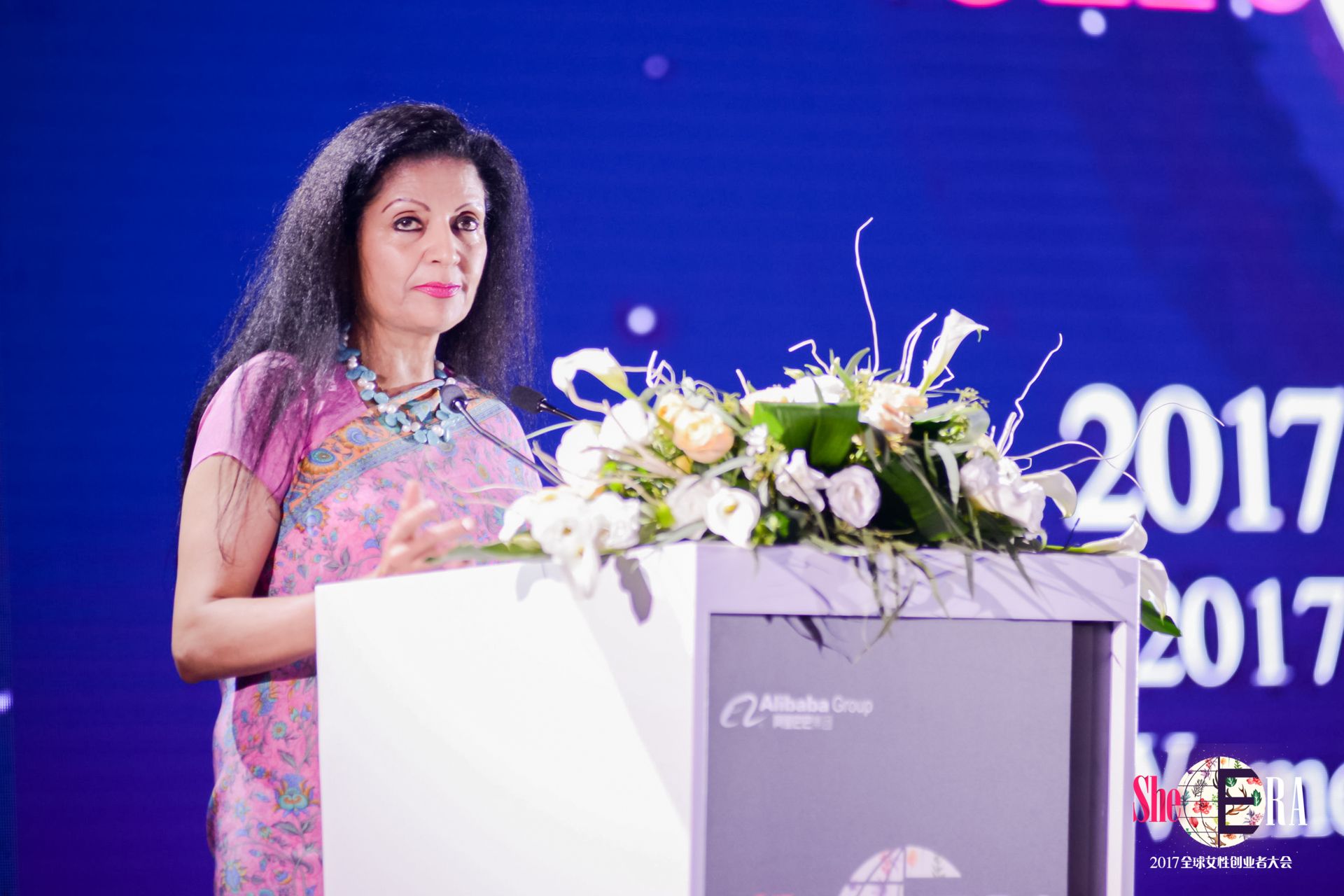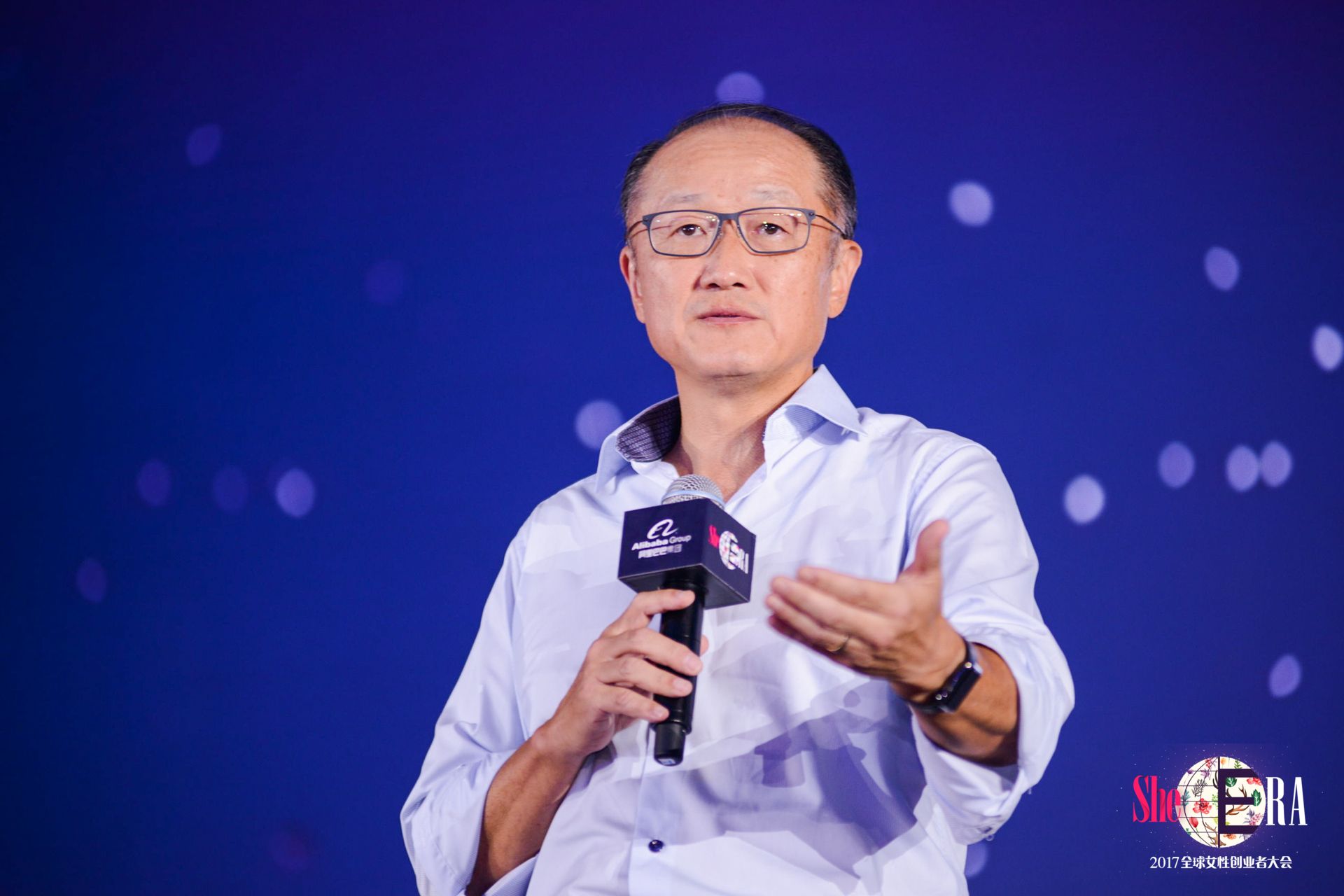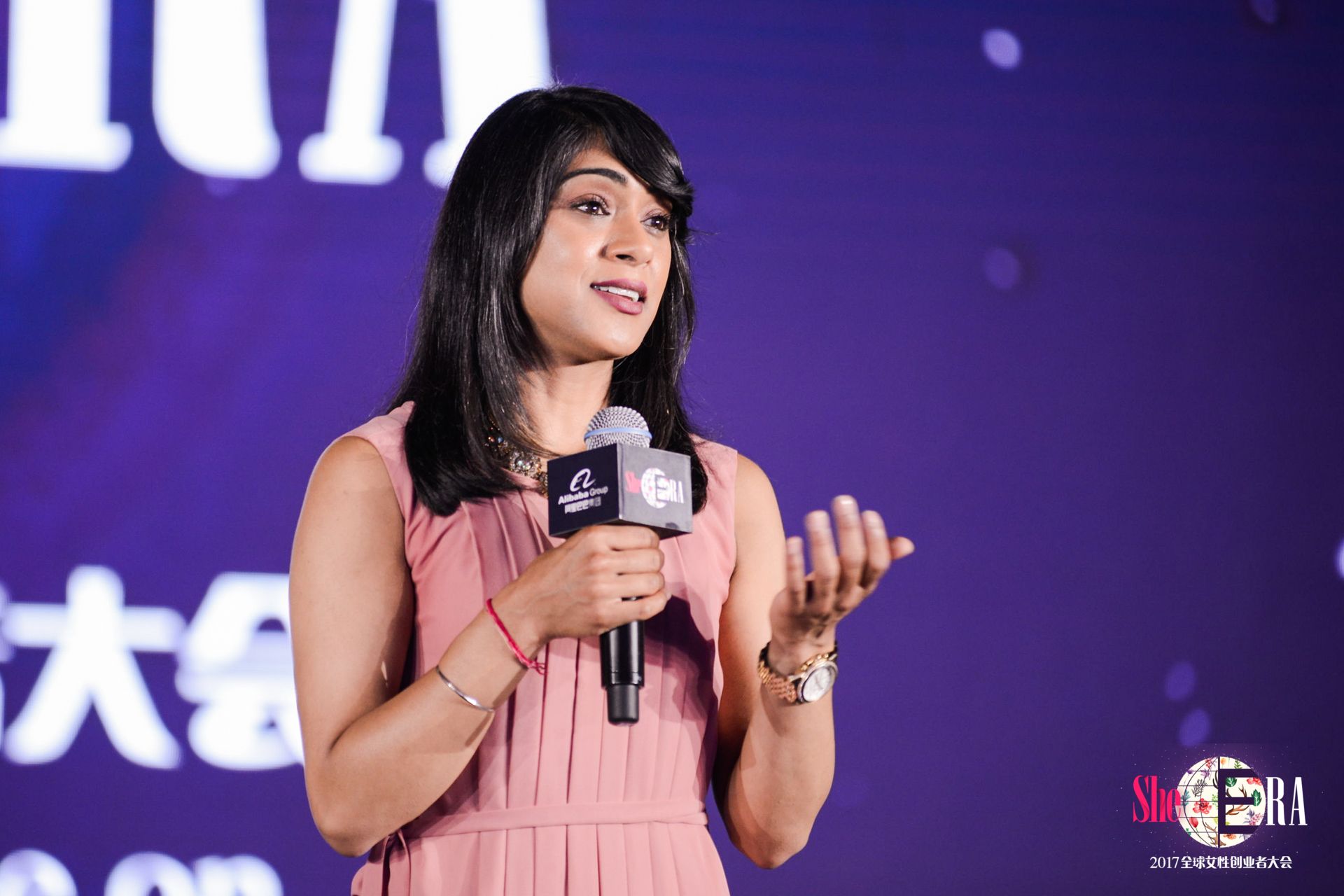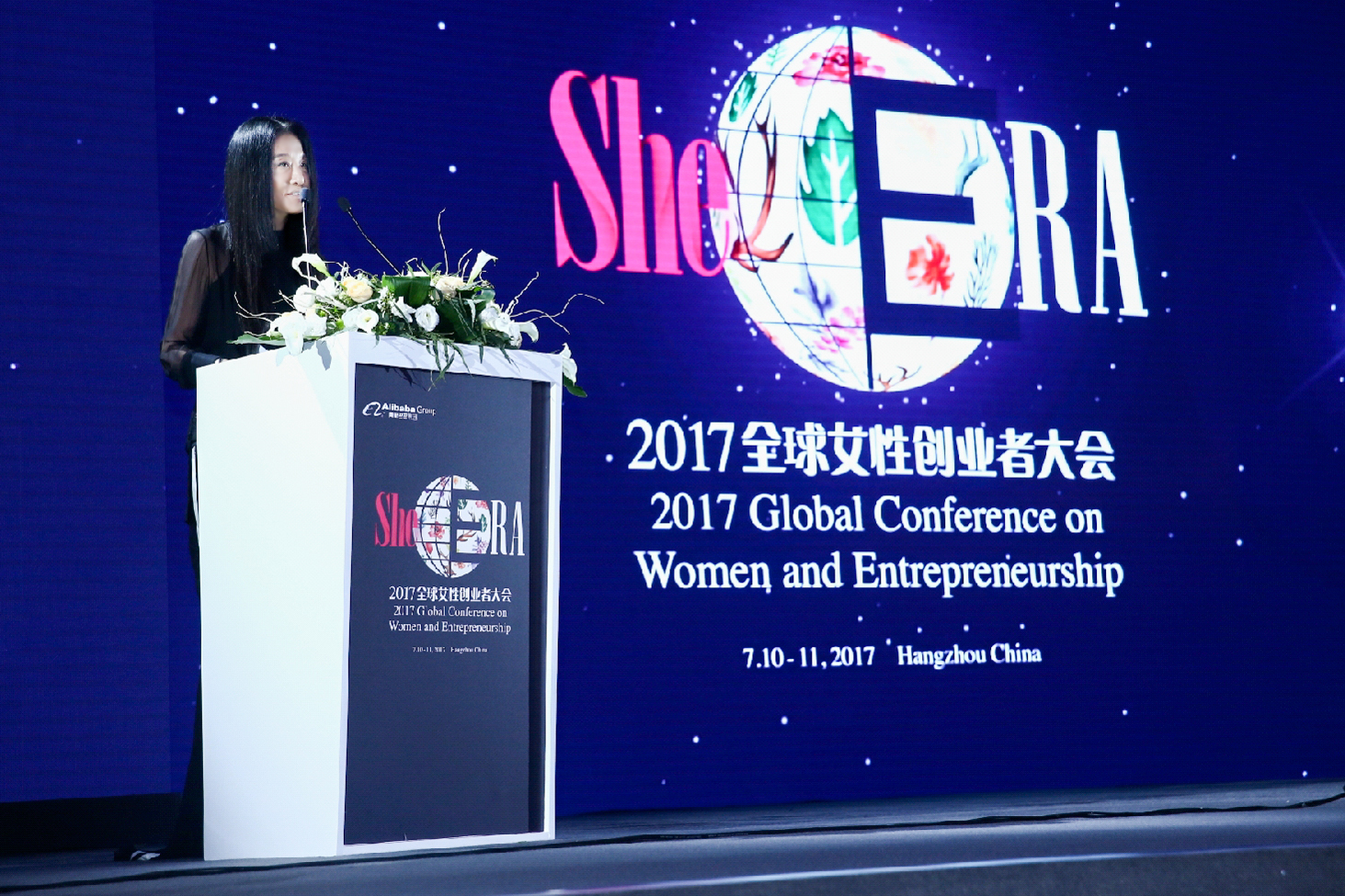
It’s past time for developed and developing economies to close an unfair gap in wages and opportunities between women and men, speakers at Alibaba’s 2017 Global Conference on Women and Entrepreneurship said Monday.
It was a message oft-repeated throughout the day: Almost without exception, in most countries – and often in systematized ways, women don’t have the same access to education, capital, networks and high-paying or high-profile roles as men. And the global economy is worse off for it.
“In many countries, women are blocked by unfortunate legal barriers, prevented from professions,” said World Bank President Jim Yong Kim. “Removing those obstacles can be a powerful driver toward economic equality.”
Kim said men outnumber women in labor markets across the globe, but the difference in global participation levels – 49 percent for men and only 22 percent for women – is staggering. So is the wage disparity, with women earning 70 cents for every dollar earned by men.
The World Bank and others are addressing the problem programmatically, overseeing or funding financial-inclusion initiatives around the world. The multilateral also works closely with private-sector companies, such as Alibaba affiliate, Ant Financial, to try and level the playing field.
Lessons learned in Ethiopia, for example, are now being applied to Indonesia, to help women entrepreneurs get a creditworthiness rating, with an eye toward gaining easier access to capital.
Bardish Chagger, Canada’s minister of small business and tourism, said the economic effects of closing a global wage gap would be both fast and astonishing. In Canada alone, where women earn 69 percent of what men do on average, the economy would see a pickup in consumer spending.
She said a McKinsey report predicted that kind of wage equality would add $150 billion to Canada’s gross domestic product and a 6 percent GDP growth rate by 2026. More broadly, wage equality would add $12 trillion to the global GDP, and if every country acted, they’d see between 6 percent and 12 percent GDP growth.
“It very much remains a world run by men,” Chagger told the audience. “The economic gap is real, it is persistent, and in this day and age, we must not accept it‚ĶWe want to see the next generation of women running companies.”
More than any program or individual initiative or step, building an ecosystem that supports women entrepreneurs will have the biggest and most lasting effect in leveling financial-system and business equality, said Lakshmi Puri, assistant secretary-general of the United Nations and deputy executive director of UN Women
Contrary to what we see today, with discriminatory laws in over 150 countries, women need to be “fully able to assert autonomy and exercise their life choices,” Puri said. She said this “women’s economic empowerment” would only happen when women have equal access to land, technology, education and financial services.
For the ecosystem of support and equality for women entrepreneurs to work, both public and private-sector corporate culture will need to change, recognizing there’s a problem or imbalance that needs to be corrected via reduction of inequality and redistribution of opportunities.
Puri said procurement, which is a fundamental business service, can be a “key driver of women’s entrepreneurship.”
“It can create opportunities as suppliers to governments, organizations, corporations, who receive goods and services to carry out their (own) services,” she said.
Puri held Alibaba up as an example of a company that recognizes the critical role women can play in shaping a global business. In a keynote address, Alibaba Executive Chairman Jack Ma underscored that point.
“In the 18 years since we founded Alibaba, it has consistently been female coworkers who pushed me forward,” he said.
Alibaba’s Partnership, the company’s top governing body, counts 12 women among its 36 partners.
Later in the day, fashion designer Vera Wang told the crowd about her unusual and circuitous journey to the pinnacle of her profession. Known for balancing the traditional in fashion with the modern and practical, Wang urged the largely female audience to be courageous and willing to test or redefine norms.
“Courage is a large part of the creative process,” she said. “Fashion grew out of my need to express myself and challenge the status quo.”
Authenticity is also vital for a business owner and designer.
“Discover what is authentic and resonates with you. It is up to you to define your own life, nobody else,” she said. “A great visionary, a great idea, great passion, great courage, cannot be ignored.”







